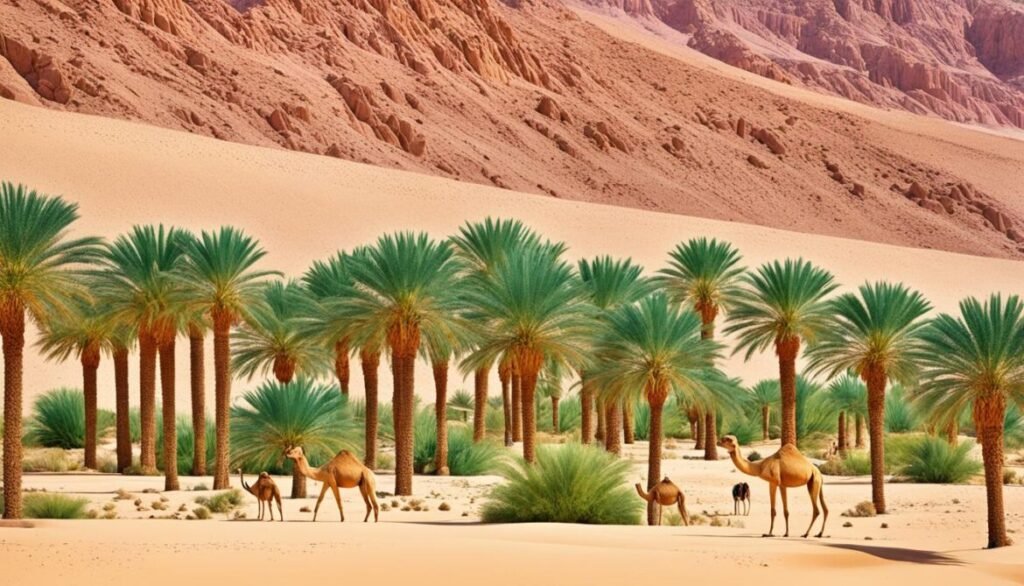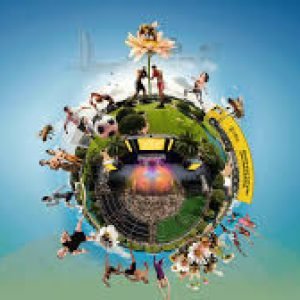In recent years, the UAE has made significant strides in environmental conservation, with national parks and natural reserves playing a key role in teaching the public about biodiversity. The concept of biodiversity—referring to the variety of life forms, ecosystems, and genetic diversity in the world—has become central to discussions on sustainability. Through education, preservation efforts, and public engagement, parks in the UAE are offering vital lessons on why biodiversity is essential to the planet’s health.
Why Biodiversity Matters
Biodiversity is not just a buzzword—it’s a critical part of the planet’s health. A rich variety of species ensures ecosystem stability, provides resources like food, medicine, and materials, and even contributes to climate regulation. In short, a loss in biodiversity can lead to ecosystem imbalances, which ultimately affect human life. As urbanization and industrialization continue to impact natural habitats, parks in the UAE have become key educational hubs that raise awareness about the importance of preserving biodiversity.
UAE Parks: A Classroom for All
The parks of the UAE, from vast nature reserves to smaller urban green spaces, have evolved into living classrooms. These areas offer not just a chance to appreciate the natural beauty of the country, but also an opportunity to learn about the delicate ecosystems that sustain life.

Take, for example, the Al Marmoom Desert Conservation Reserve. This 10-year-old reserve is a beacon for wildlife conservation, especially for species like the Arabian Oryx and the vulnerable Macqueen’s Bustard. Visitors to the reserve learn how these species thrive in the harsh desert environment and what is being done to ensure their survival. The park hosts regular educational programs where people can learn firsthand about the biodiversity of desert ecosystems, how the reserve supports endangered species, and what actions are being taken to restore habitats.
Similarly, the Dubai Desert Conservation Reserve is another vital space where both locals and tourists can witness the importance of biodiversity conservation. The park, which spans over 225 square kilometers, serves as a sanctuary for desert wildlife. It plays a significant role in showcasing the role of parks in protecting delicate environments from human encroachment. Through guided tours and eco-friendly activities, the UAE parks actively teach the public about the fragile relationships between species and their ecosystems.


Connecting People with Nature
The UAE government has recognized the importance of promoting environmental education, and national parks are central to this mission. Parks offer a unique space where citizens can form a connection with nature. The more people understand biodiversity, the more they become aware of the need to protect it.
For example, the Al Wathba Wetland Reserve in Abu Dhabi offers educational activities where visitors can observe the diverse bird species that migrate through the UAE. This experience not only highlights the importance of wetland ecosystems but also the role they play in supporting global biodiversity. Watching flamingos take flight or seeing native species in their natural habitat helps instill a sense of responsibility in visitors.
In addition to these educational programs, the UAE’s parks also serve as recreational spaces where families can enjoy the outdoors, making the topic of biodiversity even more accessible. Through various activities like nature walks, bird watching, and eco-tours, people of all ages are learning how to live harmoniously with nature.
The Role of Technology in Teaching Biodiversity

As technology continues to advance, it’s being integrated into the educational efforts in UAE parks. Digital platforms and interactive exhibits make learning about biodiversity more engaging and interactive. Visitors can now use mobile apps or virtual reality to explore different ecosystems within the parks, identifying species, learning about their habitats, and understanding the environmental challenges they face.
The Sheikh Zayed Grand Mosque Park in Abu Dhabi, for instance, combines cultural heritage with biodiversity education. Through modern technology, visitors can explore the park’s biodiversity via interactive displays that explain how plants and wildlife contribute to the UAE’s natural beauty. By using technology, parks have enhanced the learning experience, making it more accessible for a wider audience, including younger generations.
Restoration and Preservation: Parks as Conservation Leaders
Conservation efforts in the UAE extend beyond education. Many national parks are actively involved in restoration projects to protect endangered species and rehabilitate habitats. These parks aren’t just teaching about biodiversity—they’re actively preserving it.
A notable example is the Jebel Hafeet Desert Park in Al Ain, which focuses on preserving rare desert flora and fauna. The park works to restore indigenous plant species and provide a protected environment for native wildlife. Similarly, the Hatta Mountain Conservation Area offers a home to endangered species such as the Arabian tahr and Arabian leopard, all while promoting sustainable tourism practices. By maintaining these natural reserves, the UAE ensures that biodiversity continues to thrive in the region, allowing future generations to experience these natural wonders.
The UAE’s Role on the Global Stage
The UAE’s focus on biodiversity within its parks has wider global implications. By leading efforts in conservation and biodiversity education, the country sets an example for the rest of the world. The UAE’s commitment to the United Nations Convention on Biological Diversity and its participation in global conservation initiatives reflect a deep understanding of the urgent need to protect biodiversity worldwide.
Through their parks, the UAE is showcasing how nations can balance urban growth with environmental conservation. By integrating sustainable practices and fostering a culture of environmental responsibility, the UAE is working toward a future where both people and nature can coexist.

A Call to Action
As more people visit the UAE’s parks and engage with the biodiversity they host, it becomes clear that these natural spaces are more than just places for recreation—they are critical tools for environmental education. By continuing to expand and develop these areas, the UAE is leading the way in teaching the importance of biodiversity, not just within the region, but on a global scale.
The responsibility now lies with each of us to take what we learn in these parks and apply it to our daily lives. Whether it’s supporting conservation efforts, making sustainable choices, or simply spreading awareness, everyone has a role to play in protecting the planet’s biodiversity. The parks of the UAE serve as a reminder of what’s at stake, and why we must act now to ensure a future where nature thrives alongside us.
Also read: Discover the Top Eco-Friendly School Projects Transforming the UAE’s Future












